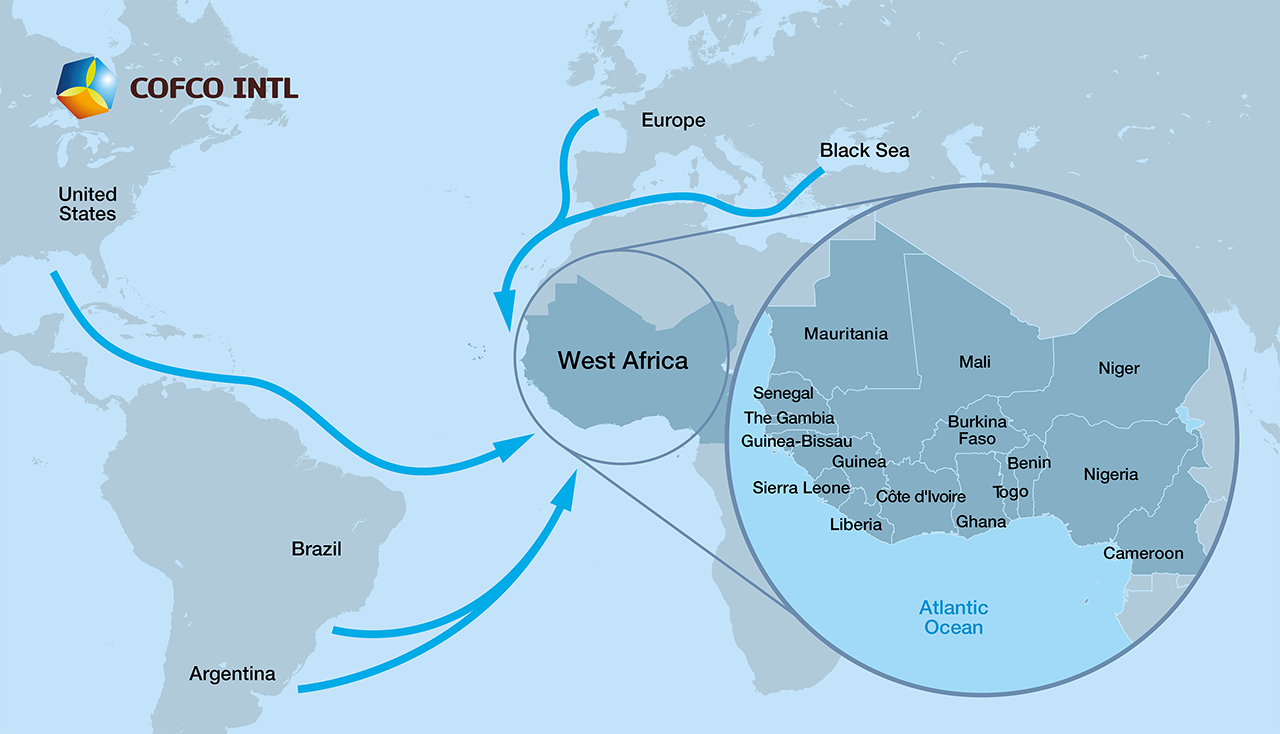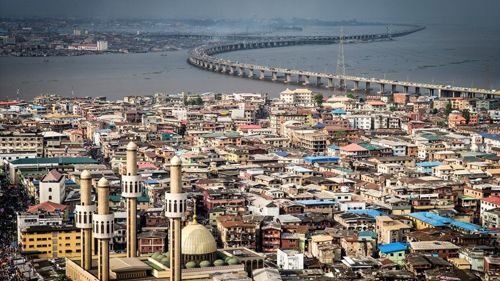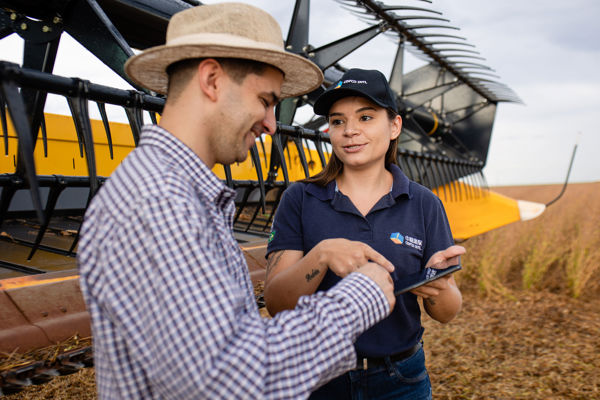
Focus on West Africa: Growing a business in a rapidly changing region
When Gregoire Lhermitte first started working in West Africa in 2000, he instantly felt it was going to be more than just a job. Today, over 20 years since he first set foot in the region, he thinks of it as his extended home.

“I was amazed by the energy and the way the countries were changing and developing,” says Gregoire who looks after COFCO International’s trading operations in the region. “I wanted to be part of it.”
His job is mainly focused on Nigeria, the biggest economy in Africa, but also covers Mali, Senegal, Ghana, Ivory Coast, Mauritania, Angola, Cameroon, and others.
He is tasked with importing wheat and occasionally other agricultural products such as corn and soybean meal to the region where local production is still insignificant and covers only a small percentage of the market. With the continent’s rapid population growth, demand for wheat is on the rise but western Africa’s unfavorable climatic conditions prevent the region from increasing its production capacity.
Every month Gregoire who worked for two other major commodities houses before joining COFCO International four years ago, travels to visit his clients in at least three countries in the area.
“Since I was a child I wanted to have an international career,” he says. “Combining it with an interesting job that deals with people, selling real products on international commodities markets is the perfect mix for me.”
For now, his activities and the company’s operations center around grain imports which involves supplying wheat to the milling and animal feed industry.

Gregoire is tasked with importing wheat and occasionally other agricultural products such as corn and soybean meal to West Africa where local production is still insignificant and covers only a small percentage of the market.
The market has significantly evolved since Gregoire started working here.
“The role of commodity traders has evolved as the region and its economies were changing,” he says.
“Not so long ago, West African countries would import flour in 50kg bags but now there are local milling industries based here so traders adapted to supply the raw material.”
Constant change, Gregoire says, is the main characteristic of working in western Africa. That’s why being reactive to the opportunities that present themselves is crucial.
And as the agricultural landscape of Africa continues to change rapidly, commodity traders have to adapt fast too.
Over the past decades, the continent’s food import bill has continued to grow but many African countries are keen to reverse the trend and export commodities to other parts of the world and increasingly within Africa too. As the population grows and gets richer, that demand will continue to grow.
“The region moving from imports to exports wouldn’t mean less work for us, it would mean we have to adapt and capitalise on the strong standing we have built here already. As traders we are well positioned to do that.”
Diversity
Part of Gregoire’s business philosophy is diversity. That means focusing on both the big and smaller players. Overlooking smaller countries where new opportunities might be emerging would be a mistake: “Everyone looks at Nigeria and the big economies, but I make sure I also know what is going on in Mali and the other smaller countries. There are opportunities and prospects of growth in some of the more challenging places too.”

Nigeria, Africa’s biggest economy, is a key focus for commodities trade in West Africa, but Gregoire cultivates contacts and business relationships all across the region, including Mali, Senegal, Ghana, Ivory Coast, Mauritania, Angola, Cameroon, and others.
“By talking to people on a regular basis, new ideas and business opportunities come up. And we do have the global network and skills needed for these types of solutions.”
Looking to the future in the region, Gregoire is optimistic.
Just three years ago he was starting to build COFCO International’s operations here from scratch. “A few years later we have built a very strong market position.”
A deep knowledge of the local markets combined with strong support from the company’s leadership and from teams spread around the world are the secret to success, according to Gregoire.
“From origins to freight through to operation and financing, the success of our presence here is really the smooth cooperation of the team. And with the rapid changes the region experiences, the team is ready to seize new opportunities for years to come.”
